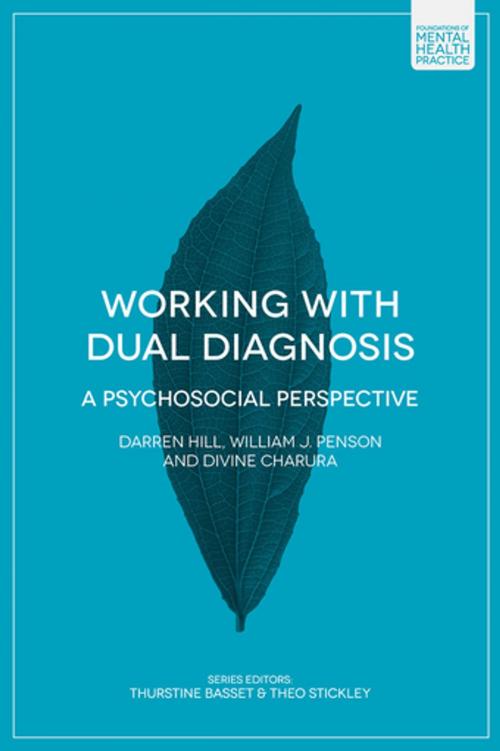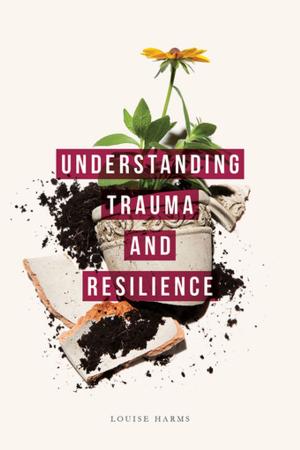Working with Dual Diagnosis
A Psychosocial Perspective
Nonfiction, Social & Cultural Studies, Social Science, Social Work, Health & Well Being, Psychology, Mental Health, Medical| Author: | Darren Hill, Bill Penson, Divine Charura | ISBN: | 9781137337689 |
| Publisher: | Palgrave Macmillan | Publication: | November 3, 2015 |
| Imprint: | Palgrave Macmillan | Language: | English |
| Author: | Darren Hill, Bill Penson, Divine Charura |
| ISBN: | 9781137337689 |
| Publisher: | Palgrave Macmillan |
| Publication: | November 3, 2015 |
| Imprint: | Palgrave Macmillan |
| Language: | English |
In the UK it is estimated that a third of patients in mental health services have a substance use problem, and that half of patients in drug and alcohol services have a mental health problem. Part of Palgrave's Foundations of Mental Health series, this book explores the intertwined issues of substance use and mental health as a social phenomenon and offers a critical, informative guide to understanding dual diagnosis.
Written by authors with extensive experience within mental health and drug treatment services, Working with Dual Diagnosis explores areas that are key to understanding the relationship between the two, including:
• models for understanding substance use, mental health and the correlation of complex social and psychological factors;
• treatment processes for working with individuals, groups and families and within a community setting;
• the historical social, political, economic and legislative context of mental health and substance use;
• practice implications for dual diagnosis, including how practitioners can work with and promote better treatment, after care and support for those experiencing dual diagnosis issues.
Enriched with reflective exercises, case studies and key points, this book will inform all work related to dual diagnosis populations within health, social and criminal justice service, and is an essential text for social work, nursing, occupational therapy and probation students.
Written by authors with extensive experience within mental health and drug treatment services, Working with Dual Diagnosis explores areas that are key to understanding the relationship between the two, including:
• models for understanding substance use, mental health and the correlation of complex social and psychological factors;
• treatment processes for working with individuals, groups and families and within a community setting;
• the historical social, political, economic and legislative context of mental health and substance use;
• practice implications for dual diagnosis, including how practitioners can work with and promote better treatment, after care and support for those experiencing dual diagnosis issues.
Enriched with reflective exercises, case studies and key points, this book will inform all work related to dual diagnosis populations within health, social and criminal justice service, and is an essential text for social work, nursing, occupational therapy and probation students.
In the UK it is estimated that a third of patients in mental health services have a substance use problem, and that half of patients in drug and alcohol services have a mental health problem. Part of Palgrave's Foundations of Mental Health series, this book explores the intertwined issues of substance use and mental health as a social phenomenon and offers a critical, informative guide to understanding dual diagnosis.
Written by authors with extensive experience within mental health and drug treatment services, Working with Dual Diagnosis explores areas that are key to understanding the relationship between the two, including:
• models for understanding substance use, mental health and the correlation of complex social and psychological factors;
• treatment processes for working with individuals, groups and families and within a community setting;
• the historical social, political, economic and legislative context of mental health and substance use;
• practice implications for dual diagnosis, including how practitioners can work with and promote better treatment, after care and support for those experiencing dual diagnosis issues.
Enriched with reflective exercises, case studies and key points, this book will inform all work related to dual diagnosis populations within health, social and criminal justice service, and is an essential text for social work, nursing, occupational therapy and probation students.
Written by authors with extensive experience within mental health and drug treatment services, Working with Dual Diagnosis explores areas that are key to understanding the relationship between the two, including:
• models for understanding substance use, mental health and the correlation of complex social and psychological factors;
• treatment processes for working with individuals, groups and families and within a community setting;
• the historical social, political, economic and legislative context of mental health and substance use;
• practice implications for dual diagnosis, including how practitioners can work with and promote better treatment, after care and support for those experiencing dual diagnosis issues.
Enriched with reflective exercises, case studies and key points, this book will inform all work related to dual diagnosis populations within health, social and criminal justice service, and is an essential text for social work, nursing, occupational therapy and probation students.















